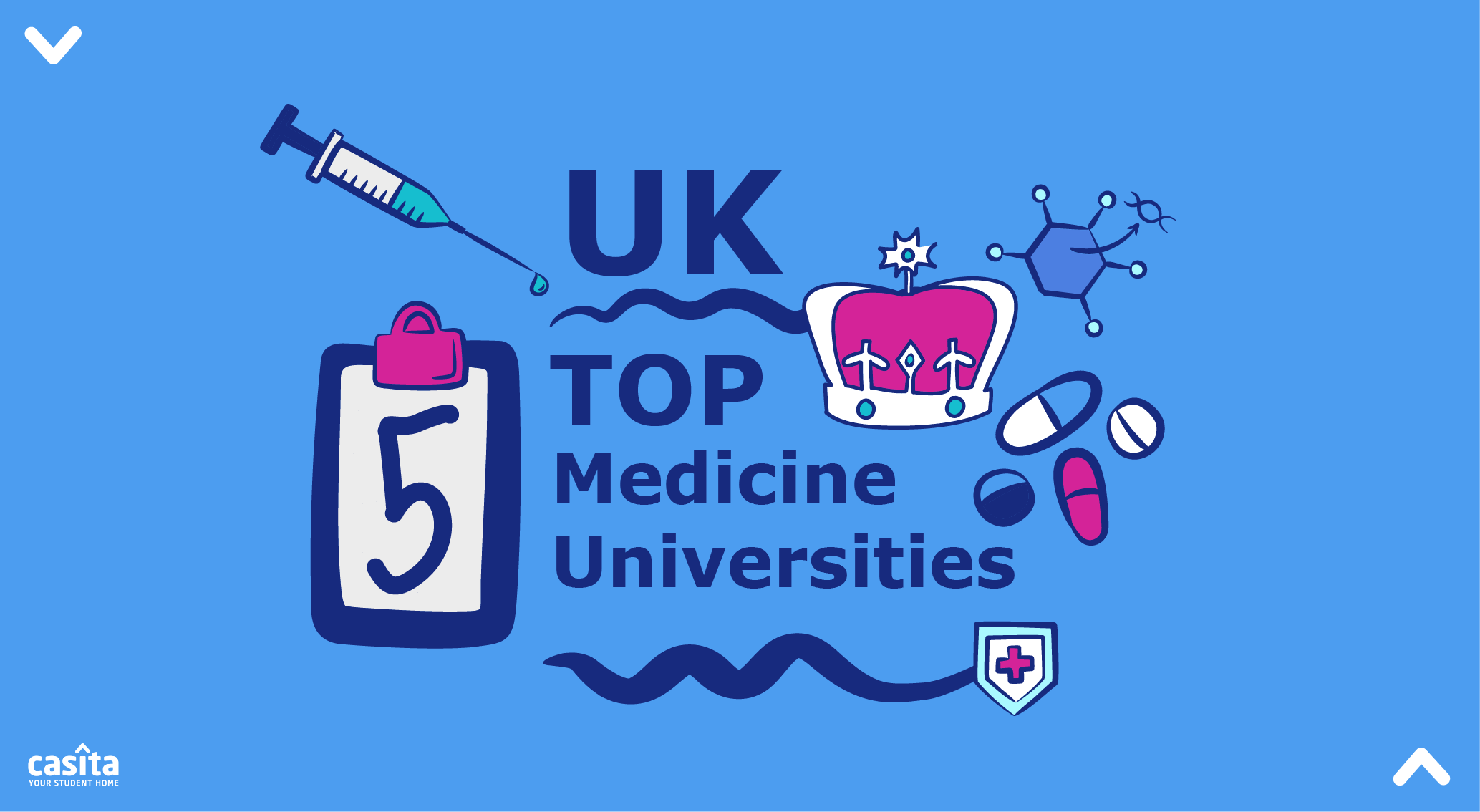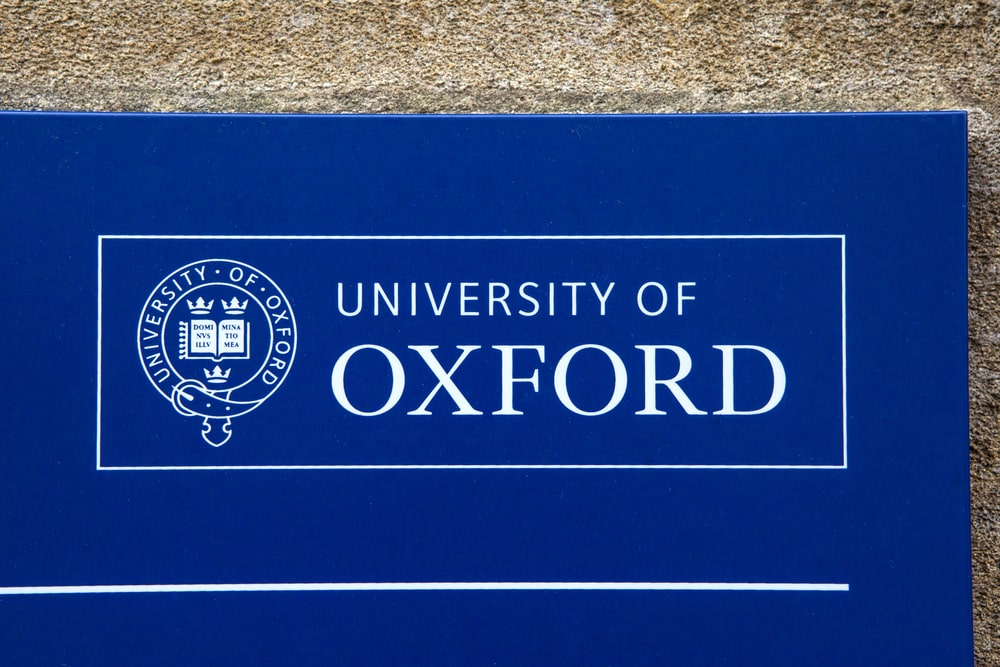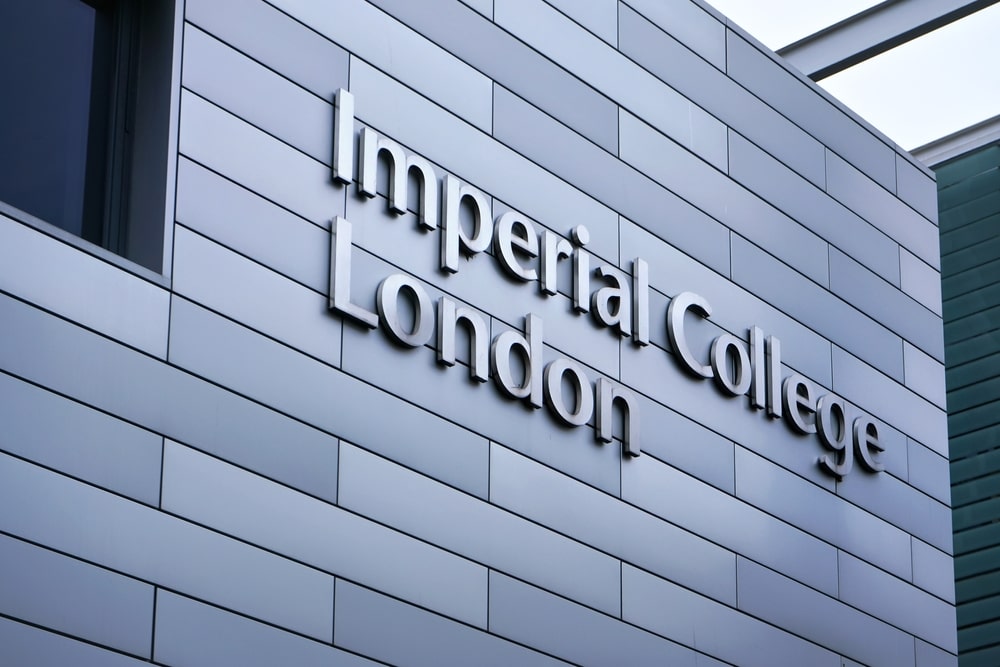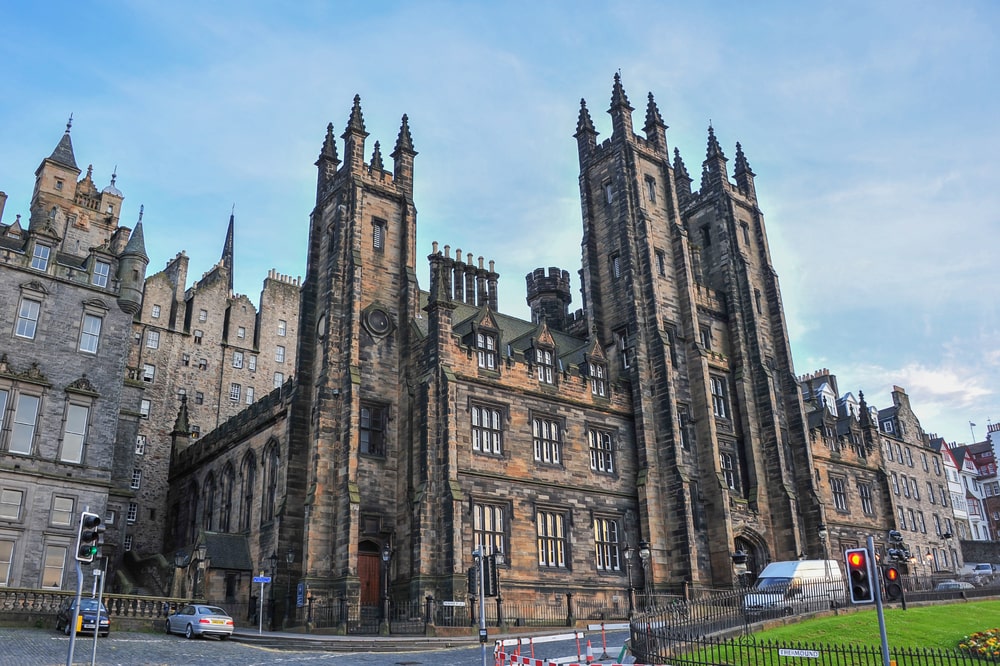Top Medicine Universities in the UK
University Life
10 mins read
Share

Updated at: 25 November, 2025
Published at: 02 April, 2021
By Reem Mohamed
Top Medicine Universities in the UK
University Life
10 mins read

Updated at: 25 November, 2025
Published at: 02 April, 2021
By Reem Mohamed
Share
Many students, throughout their educational journey, gravitate towards medicine when choosing what to major in and paving their future career paths. The medical field is nothing if not diverse and has room for students to pick and choose what they want to specialise in and how they want to leave their mark on the world moving forward.
Medical students, once done with pre-med, often struggle with picking the right medical school UK to study at and get their degree from. This is why we’ve worked and done the research to curate this list of the top medicine universities in the UK for students to consider when sending out their applications, let’s take a closer look at all of the options!
Top Medicine Universities in the UK
Medicine, while a hard field to make headway in, is a popular one still. Students spend their years studying pre-med and then delving into all nooks and crannies of medical sciences that qualify them to become future doctors and professional healers. This makes the choice of which university or medical school to get their education at an important decision. Here are all the top medical schools UK where you can follow your passions!

1. University of Oxford - Medical School
A great deal of Oxford University’s status and fame as an educational institution is owed to its anciency as well as its high rank worldwide. Oxford Medical School is considered one of, if not the best, medical school in UK. Besides, it was considered the best medical institution in the world for the ninth consecutive year, according to Times Higher Education World University Rankings 2020 for clinical, pre-clinical, and health sciences. This Medical School is known for its services alongside education; it has a lot of amenities, including student accommodation for freshers, a dining hall, a lending library, a common room known as JCR, a reception, and laundry facilities.
There are two stages in the Oxford Medical School: a three-year pre-clinical stage and a three-year clinical stage. The pre-clinical stage is where you gain a comprehensive grounding in medical sciences. Its classes and lectures are delivered in the Medical Sciences Teaching Centre in the Science Area by academic and research staff.
Pre-clinical Stage
During the Preclinical stage, for the first three terms (First Bachelor of Medicine Part I), you will study five courses:
Organisation of the Body
Patient and Doctor Course
Biochemistry and Medical Genetics
Population Health: Medical Sociology
Physiology and Pharmacology
At the end of the year, you will take three computer-based assessments and submit four written papers. Part of your evaluation is a satisfactory practical record.
In the fourth and fifth terms (First BM Part II), you will study five courses as well:
The Nervous System
Principles of Pathology
Psychology for Medicine
Applied Physiology and Pharmacology
Patient and Doctor Course
After you finish the two terms, you will sit for three computer-based exams and then submit four written papers. A satisfactory practical record is also part of your assessment.
In the last five terms in the preclinical stage (Final Honour School in Medical Sciences), you will choose two courses from ten. You can select from Pharmacology and Signalling, Infection, Immunity, Neuroscience and Cardiovascular Science. At the end of the third year, you will study the Principles of Clinical Anatomy course you will use in your clinical training. You will sit for written exams. As part of your assessment, you will be asked to submit an extended essay and research project write-up. Then, you will give an oral presentation on your research project.
Clinical Stage
To undertake your clinical training and be an official medical doctor, apply to the Oxford Clinical School at the beginning of your third year. Clinicians from the Oxford University Hospitals NHS Foundation Trust, local primary care physicians, and university academic staff deliver most teaching. After completing the three-year clinical stage, you will hold the Bachelor of Medicine and Bachelor of Surgery or in Latin: Medicinae Baccalaureus Baccalaureus Chirurgiae (BM BCH).
2. The University of Cambridge - School of Clinical Medicine
According to the QS World University Rankings by Subject, the University of Cambridge is the second among the best unis for medicine UK. The Cambridge School of Clinical Medicine offers two courses; Standard Course in Medicine (UCAS Code A100) and Graduate Course in Medicine (UCAS Code A101). After completing your first three years, you will hold a BA degree in medicine. After completing the three-year clinical studies, you will hold two degrees: Bachelor of Medicine and Bachelor of Surgery (MB, BChir).
Pre-clinical Stage of the Standard Course in Medicine
In Years one and two, you study the scientific basis related to medicine. The courses you will study include the following:
Biology of Disease
Human Reproduction
Homeostasis
Mechanisms of Drug Actions
Functional Architecture of the Body
Neurobiology and Human Behaviour.
You will also study some clinical subjects like Social and Ethical Context of Health and Illness and Foundations of Evidence-Based Practice. In Year 3, you will specialise in one subject, elective medical, and you will choose it from a wide range of options. These options include a natural sciences subject, a Biological and Biomedical Sciences subject in Natural Sciences, or a non-core science subject like Management Studies, Anthropology, or History of Medicine. During these three years, you will meet patients in general practice, in a hospital and, in a community-based health-related agency.
Clinical Stage of the Standard Course in Medicine
During the clinical studies in Years 4, 5 and 6, you will develop your skills and knowledge to practice clinical medicine. The clinical studies focus on several major themes, including the following:
Therapeutics
Patient Management
Core Clinical Science
Pathology
Diagnostic Reasoning
Improving Health
Professionalism
Patient Safety
Communication Skills
Patient Investigation
Practical Procedures
Your training will focus on core clinical practice in Year 4, specialist clinical practice in Year 5, and applied clinical practice in Year 6. Your clinical placement will be at Cambridge Biomedical Campus and Cambridge University Hospitals NHS Foundation Trust, and other regional hospitals and GP practices throughout the East of England
Graduate Course in Medicine
The four-year Graduate Course in Medicine is open to the graduates of arts, humanities and science and is only available to home-fee status students. In Years 1 and 2, you will study Core Clinical Practice and Core Medical Science. In Year 3, your training will be focused on Specialist Clinical Practice (SCP) to enable you to build your diagnostic and professional skills. In the last year, you will link the core knowledge with clinical experience by focusing on Applied Clinical Practice (ACP).

3. Imperial College School of Medicine (ICSM)
Imperial College London is known for its science, engineering, and medicine programmes. It forms the “Golden Triangle” that comprises six elite UK universities with Oxford and Cambridge included and is part of the Russell Group as well. That’s why the Imperial College School of Medicine (ICSM) is one of the top medical schools UK. It is ranked fifth in the UK according to the Times University Guide 2021 and eighth in the world according to the QS World University Rankings 2021.
Imperial College School of Medicine offers an MBBS programme with two pathways. The first pathway is a five-year MBBS Graduate Medicine (UCAS Code A109) for science graduates only, but it has been suspended, for now, to update their curriculum. The second pathway is a six-year MBBS/BSc Medicine (UCAS Code A100) which we will discuss in detail below.
The six-year MBBS/BSc Medicine consists of three phases. Phase 1 will introduce you to the scientific basis of health and disease and clinical practice foundations. It consists of three years. You will study the following two modules during Phases 1a, 1b, and 1c: Patients, Communities, and Healthcare and Clinical Science Integrative Cases. In Phases 1a and 1b only, you will study Lifestyle Medicine and Prevention and Bioregulatory Systems. In Phase 1a, you will study Principles of Medicine. In Phase 1b, you will study Clinical Research and Innovation, Phase 1b Clinical Practical Assessment and an I-Explore module. In Phase 1c, you will study Medicine in the Community Apprenticeship, Phase 1 Medicine, Phase 1 Surgery, and Synoptic Clinical Skills. At the end of the phase, you will take a written assessment.
In Phase 2 (Year 4), you will develop your scientific knowledge and search skills by completing several courses and submitting a research project in a medical/scientific subject of your choice. There is a wide range of subjects, including the following:
Upon completing this phase, you will hold BSc in Medical Sciences with “the module you submitted your research project in”.
Phase 3 consists of two years. In this phase, you will explore how clinical teams work together in hospitals to provide the best care for patients. You will study Psychiatry, Child Health, Surgery and Cancer, Medicine, Women’s Health, General Practice and Primary Healthcare, The Ageing Patient, and Clinical Reasoning in Phase 3a. However, you will study Acute Care, General Practice Student Assistantship and Student Apprenticeship in Phase 3b. In the speciality choice modules and the elective medical period, you will have the chance to choose your field of speciality according to your interests.
4. University College London (UCL) Medical School
The University College London Medical School is ranked ninth worldwide according to Times Higher Education’s World University Rankings 2021. It offers an MBBS programme, an MB PhD programme, a postgraduate programme, and more. The General Medical Council (GMC) accredited the UCL six-year medicine degree and is approved as a Primary Medical Qualification (PMQ).
To gain access to the MBBS programme, apply during the final year of your undergraduate programme through the UK Foundation Programme Office selection scheme to obtain a Foundation Year One post. After successfully completing this programme, you will be awarded a certificate of experience. To practice medicine in the NHS or private practice in the UK, you need full registration with a license, and you will be eligible to apply with the GMC for full registration once you complete the Foundation Year One programme.
This six-year program makes you eligible for the Bachelor of Science (BSc) and Bachelor of Medicine and Bachelor of Surgery (MBBS) awards. In Years 1 and 2, you will study modules related to clinical studies fundamentals to gain a deep understanding of the scientific knowledge related to clinical practices. Year 3 is integrated with the BSc programme. In Year 4, you will put the theoretical sciences into practice to gain experience in diagnosing and managing patients’ problems. Year 5 is about the life cycle where you will encounter patients with medical conditions from across the seven ages of man. You will explore the following:
Family and Adult Health and Behaviour through Psychiatry
Dermatology
Ophthalmology
Urology
Breast Services
ENT
General Practice
During this year, you will study three compulsory modules:
CFH: Child and Family Health through Paediatrics, General Practice, and Child and Adolescent Mental Health (CAMH)
WHMHD: Women’s Health and Men’s Health with Dermatology through Obstetrics, Gynaecology, Breast disease, Urology, Genito-urinary medicine, Contraception, and HIV medicine
HOPE: Care of the older person, Ophthalmology, Cancer Medicine and Palliative Care, Psychiatry (including CAMHs and Liaison), and ENT
In the last year, you will practice what you have learnt and reflect on your experience and behaviour.

5. University of Edinburgh - Medical School
Holding its position as one of the best medical schools in UK, the University of Edinburgh Medical School is well-known for its excellence in teaching and research. It offers a six-year medicine MBChB degree. The programme consists of compulsory and optional courses built around 12 major outcome themes, including the following:
Psychological Aspects of Medicine
Legal and Professional Responsibilities
Clinical Pharmacology and Therapeutics
Clinical Communication
Medical Informatics
Evidence-based Medicine
Research
In Years 1 and 2, you will focus on studying the biomedical and clinical sciences like microbiology, pharmacology, anatomy, pathology, and physiology. You will also learn the social and ethical aspects of clinical practice. In addition, you will gain practical clinical skills such as interviewing patients, clinical reasoning, decision-making, resuscitation, and more.
Year 3 is an intercalated research-based degree. You will choose a subject from a wide range of options to experience aspects of academic medicine. These options include the following:
Epidemiology
Bioethics
Law and Society
Infectious Diseases
Literature and Medicine
Psychology
Sports Science Medicine
Reproductive Biology
Anaesthesia
Critical Care and Pain Medicine
After you finish Year 3, you will hold a Bachelor of Medical Sciences Honours degree.
In Year 4, you will study all aspects of clinical medicine and healthcare and gain practical experience through general practice and hospital placements. In Year 5, you will submit a research project and explore several specialities. During Year 6, you will apply what you have studied from the five previous years by assisting a junior doctor and undertaking Foundation Year 1 doctor’s duties. You will also develop your practical skills in emergency medicine, anaesthetics, general and acute medicine, surgery, and intensive care.
After sitting for the final exams, you will have the opportunity to travel abroad to study for six weeks in the elective period. You will travel to Australia, India, Samoa, the Caribbean, South Africa, or Ghana. Upon graduation, you will receive an MBChB and a BMedSci (Hons) degree.
Other Top Medical Schools UK
There are other best unis for medicine UK like the following:
Using this comprehensive guide of the best medical schools UK, you should have a better understanding of the scene and which school you would eventually enrol in ad get your medical training. Whether you choose Oxford, Cambridge, UCL, or Imperial College London, there is no doubt you will receive some of the best-quality medical education and graduate with the knowledge and means to be a productive member of society who pursuing their passions of saving lives and helping others!
So, what are you waiting for? Apply to the best university for you today and Casita will get you the closest and ideal student accommodation!
Frequently Asked Questions
1. What is the best university to study medicine in UK?
The best universities to study medicine in the UK include the following:
University of Oxford
University of Cambridge
University of Edinburgh
University of Aberdeen
Imperial College London
University College London
2. What is the number 1 medical school in the UK?
The number one medical school in the UK is the University of Oxford Medical School, followed by the University of Cambridge Medical School.
3. What is the hardest university to get into UK medicine?
The hardest medical university to get into in the UK is the University of Oxford Medical School.
4. Is UK the best country to study medicine?
The UK is one of the best countries to pursue a medical education and get a renowned medical degree.
5. Which UK medical schools take the most international students?
The UK medical schools that take the most international students include the following:
University of Oxford
University of Cambridge
University of Glasgow
University of Edinburgh
University Life
By Reem Mohamed
Share
University Life
Updated at:
Published at:
By Reem Mohamed
Share


